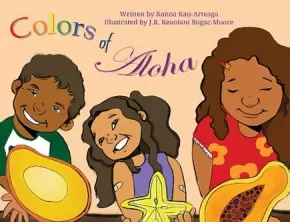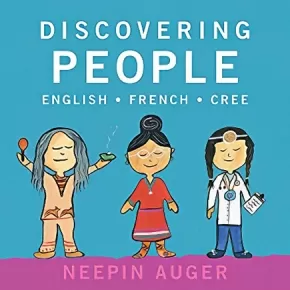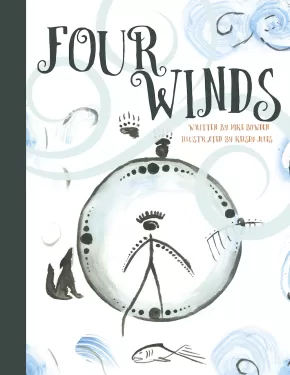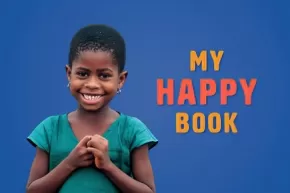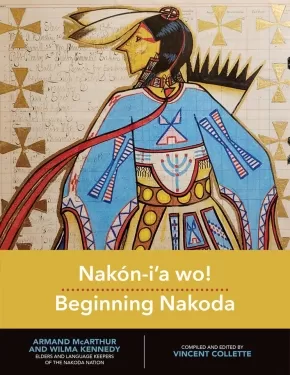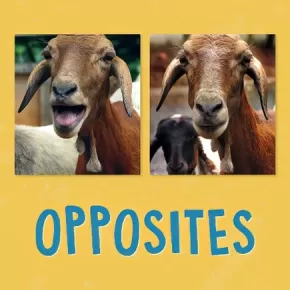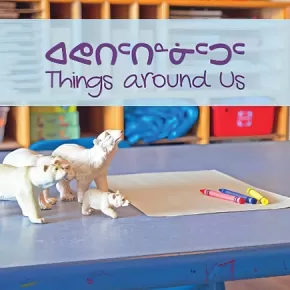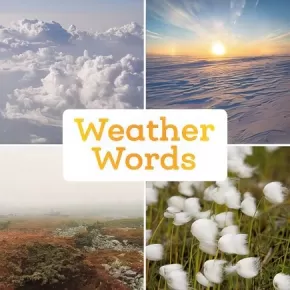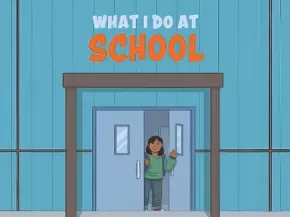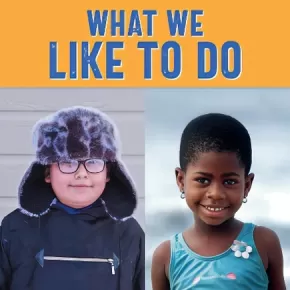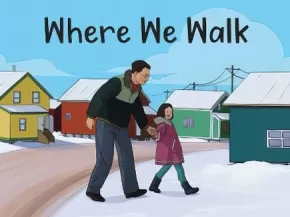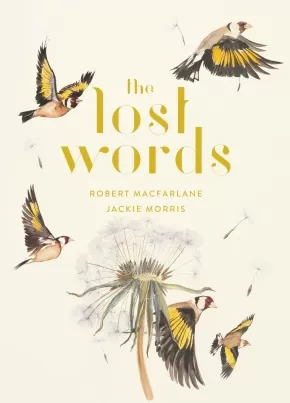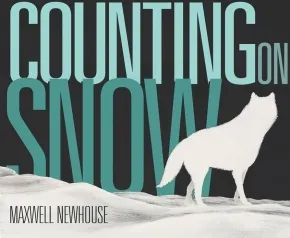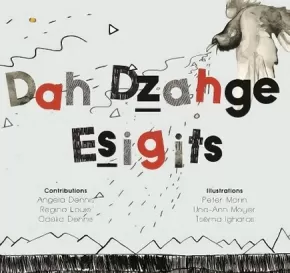
Vocabulary Building
106
-
120
of
127 Results;
Sort By
Go To
of 9
Colors of Aloha
$15.95
Artists:
Format:
Paperback
Text Content Territories:
Indigenous Hawaiian;
Grade Levels: Preschool; Kindergarten;
ISBN / Barcode: 9781775084082
Synopsis:
Synopsis:
The world is bursting full of beautiful colors, from the blue of the fish to the green of the leaves! Even more wondrous are the many names the different peoples of the world have for them. Join these Hawai’ian kids, their older brother and his boyfriend as they adventure around their island to learn their colors – and a little about love along the way.
Reviews
"Learn the Hawai'ian words for colors in this lovely, family-oriented, BIPOC-centered story. This #OwnVoices picture book is written by a māhū (trans) person and illustrated by a queer, Black Native Hawaiian artist." - The Seattle Public Library
Educator Information
Recommended for ages 3 to 5.
An indigenous Hawai’ian colour adventure, featuring older brother Kalani teaching a gaggle of keiki their colors on a Saturday fishing trip.
Additional Information
10.75" x 8.25" | Paperback
Discovering People: English, French, Cree (BB)
$12.00
Artists:
Format:
Board Book
Text Content Territories:
Indigenous Canadian; First Nations; Cree (Nehiyawak);
Grade Levels: Preschool;
ISBN / Barcode: 9781771603270
Synopsis:
Synopsis:
The fourth book in this colourful and unique series introduces twenty-two basic words in English, French, and Cree relating to familiar people at home and in the community.
Neepin Auger's books for children contain original, brightly coloured images and early education level concepts familiar to everyone. Playful and bold, this dynamic series will educate and entertain preschoolers, parents, and teachers alike.
In addition to the English words presented, the French and Cree equivalents are also given, making these some of the most dynamic and useful board books on the market, perfectly suitable for the classroom, library, and nursery.
Educator & Series Information
Recommended for ages 3 and under.
This is the fourth book in a series of Discovering books from Neepin Auger.
Recommended in the Canadian Indigenous Books for Schools 2020/2021 resource list as being useful for grades K-1 in these areas: Career Education, English Language Arts, and Social Studies.
Additional Information
30 pages | 6.50" x 6.50"
Four Winds
 $18.50
$18.50

Artists:
Format:
Hardcover
Text Content Territories:
Indigenous Canadian; First Nations; Salish; Interior Salish; Secwepemc (Shuswap);
ISBN / Barcode: 9781771744478
Synopsis:
Synopsis:
A curious Qelmúcw (Person) from the Secwépemc Nation is learning about the world around him with the help of some of his relations. Sk̓elep (Coyote) and Tree guide Qelmúcw in understanding Cmesekst te Snewt (The Four Winds).
Qelmúcw experiences the power of a learning journey using perseverance and courage. He discovers that for meaningful learning to happen he needs to find balance or he could be blown off his learning journey, or even worse, not be completely open to his learning.
This story reflects the reciprocal learning and understanding relationship between a human being and all life and elements (all of relations). It models and reflects the importance of First Peoples’ Principles of Learning: learning is holistic, reflexive, experiential, and relational; learning involves the consequences of one’s actions; learning is embedded in story; and learning involves patience and time. Learning from Indigenous stories can be different and personal every time a story is read or told, depending on context.
Four Winds is the perfect bedtime story or read-aloud in the classroom.
This book works well alongside other books by Mike Bowden and Kelsey Jules, including Chief Goose and Porcupine, and includes a familiar character from Bear and Coyote.
Educator Information
Recommended for grades 3 to 7.
Recommended for grades 3 to 7.
This book is part of the Secwépemc Stories series.
This story is a great resource to introduce Indigenous languages to young readers. Secwepemctsín is one of 30 distinct Indigenous languages in British Columbia and is in the process of being revitalized after governments and religions developed policies to eliminate the rich language and culture of Indigenous peoples. The book integrates Secwépemc words into the text and includes a pronunciation guide on every page. The back of the book includes language resources and a link to an audio pronunciation guide for the Secwépemc alphabet.
This story connects to the BC First Peoples’ Principles of Learning and provides an opportunity for those reading to reflect, explore, connect, and learn on a personal interpretative level.
Curriculum links:
- Social emotional learning: community, helping others, critical thinking, learning from mistakes and trying again
- Reading and language skills
- Indigenous knowledge and traditions
Additional Information
32 Pages | 8.5 " x 11" | ISBN: 9781771744478 | Hardcover
32 Pages | 8.5 " x 11" | ISBN: 9781771744478 | Hardcover
My Happy Book - Nunavummi Reading Series
$7.95
Format:
Paperback
ISBN / Barcode: 9780228702597
Synopsis:
Synopsis:
What makes you happy?
This book celebrates everyday life in Ghana, West Africa, and helps readers identify different things that make them happy.
Educator & Series Information
This book is part of the Nunavummi Reading Series, a Nunavut-developed series that supports literacy learning while teaching readers about the people, traditions, and environment of the Canadian Arctic. The Nunavummi Reading Series is now offering books that explore a global perspective. This is one of those books, focusing on the daily life of people in Ghana, West Africa.
This book is a level 7 book in the Nunavummi Reading Series.
Nunavummi Reading Series books have also been officially levelled using the Fountas & Pinnell Text Level Gradient™ Levelling System. This book's F&P level: B.
Curriculum Connections: Language and Literacy; Diversity; Identity.
Recommended for ages 5-7.
Additional Information
24 pages | 9.00" x 6.00"
Nakón-i'a wo! Beginning Nakoda
$34.95
Editors:
Format:
Coil Bound
Text Content Territories:
Indigenous Canadian; First Nations; Assiniboine (Nakoda Oyadebi);
ISBN / Barcode: 9780889776623
Synopsis:
Synopsis:
Nakón-i'a wo! Beginning Nakoda is a language resource designed to help revitalize and document Nakoda, now spoken in Manitoba and Saskatchewan.
Written for beginning learners of Nakoda (also known as Assiniboine), this workbook, arranged thematically, provides a Nakoda/English lexicon, a vocabulary, a table of kinship terms, a glossary of linguistic terminology, and exercises to do after each lesson.
This book was made possible with the assistance of Elders and Language Keepers of the Nakoda Nation: Armand McArthur and Wilma Kennedy, Main Consultants; with additional contributions by Pete Bigstone, Leona Kroscamp, Freda O'Watch, and Ken Armstrong.
Educator & Series Information
Recommended for Grades 7+
Part of the Indigenous Languages for Beginners series.
Additional Information
304 pages | 8.50" x 11.00" | Black and white illustrations throughout
Opposites - Nunavummi Reading Series
$7.95
Format:
Paperback
ISBN / Barcode: 9780228702474
Synopsis:
Synopsis:
Let’s learn about opposites!
This book helps children learn about the concept of opposites while celebrating daily life in Ghana, West Africa.
Educator & Series Information
This book is part of the Nunavummi Reading Series, a Nunavut-developed series that supports literacy learning while teaching readers about the people, traditions, and environment of the Canadian Arctic. The Nunavummi Reading Series is now offering books that explore a global perspective. This is one of those books, focusing on the daily life of people in Ghana, West Africa.
This book is a level 6 book in the Nunavummi Reading Series.
Nunavummi Reading Series books have also been officially levelled using the Fountas & Pinnell Text Level Gradient™ Levelling System. This book's F&P level: D.
Curriculum Connections: Language and Literacy; Diversity.
Recommended for ages 5-7.
Additional Information
30 pages | 8.00" x 7.90"
Things around Us (English/Inuktitut)
$13.95
Format:
Paperback
Text Content Territories:
Indigenous Canadian; Inuit;
Grade Levels: Preschool;
ISBN / Barcode: 9780228701781
Synopsis:
Synopsis:
What do you see around you?
In this interactive book, children are challenged to look around the room and find the objects shown in the pictures. Children are encouraged to move and touch the things they find. This makes learning fun while supporting early language development.
Educator & Series Information
Bilingual: English and Inuktitut
Recommended Ages: 0-3
This is an Arvaaq Book. Books in this series are intended for infants and very young children and are designed to help children develop physical, social, emotional, cognitive, and language skills.
Additional Information
20 pages | 8.50" x 8.50"
Things in the Classroom - Nunavummi Reading Series
$7.95
Artists:
Format:
Paperback
ISBN / Barcode: 9780228702115
Synopsis:
Synopsis:
What do you see in your classroom?
This book features common items found in a classroom, such as a chair and a desk. Illustrations guide children to practise reading the single word on each page.
Educator & Series Information
This book is part of the Nunavummi Reading Series, a Nunavut-developed series that supports literacy learning while teaching readers about the people, traditions, and environment of the Canadian Arctic. It is a Level 3 book in the series.
Nunavummi Reading Series books have also been officially levelled using the Fountas & Pinnell Text Level Gradient™ Levelling System. This book's F&P Level is LB.
Curriculum Connections: Language and literacy
Recommended for ages 3-6.
Additional Information
12 pages | 7.00" x 7.00"
Weather Words - Nunavummi Reading Series
$7.95
Format:
Paperback
ISBN / Barcode: 9780228701934
Synopsis:
Synopsis:
What’s the weather like in Nunavut?
This book features simple nouns related to the weather. Beautiful photographs of Nunavut guide children to practise reading the single word on each page.
Educator & Series Information
This book is part of the Nunavummi Reading Series, a Nunavut-developed series that supports literacy learning while teaching readers about the people, traditions, and environment of the Canadian Arctic. It is a Level 3 book in the series.
Nunavummi Reading Series books have also been officially levelled using the Fountas & Pinnell Text Level Gradient™ Levelling System. This book's F&P Level is LB.
Curriculum Connections: Language and literacy; Environmental awareness
Recommended for ages 3-6.
Additional Information
12 pages | 7.00" x 7.00"
What I Do at School - Nunavummi Reading Series
$7.95
Artists:
Format:
Paperback
ISBN / Barcode: 9780228701873
Synopsis:
Synopsis:
What do you do at school?
This book uses simple action words to describe what a child does at school.
Educator & Series Information
This book is part of the Nunavummi Reading Series, a Nunavut-developed series that supports literacy learning while teaching readers about the people, traditions, and environment of the Canadian Arctic. It is a Level 4 book in the series.
Nunavummi Reading Series books have also been officially levelled using the Fountas & Pinnell Text Level Gradient™ Levelling System. This book's F&P Level is A.
Curriculum Connections: Language and literacy; Identity; Roles and responsibilities
Recommended for ages 3-6.
Additional Information
12 pages | 8.00" x 6.00"
What We Like to Do - Nunavummi Reading Series
$7.95
Format:
Paperback
Text Content Territories:
Indigenous Canadian; Inuit;
ISBN / Barcode: 9780228702658
Synopsis:
Synopsis:
Utak is from Nunavut. Peace is from Ghana, West Africa. They may be from different parts of the world, but many of the things they like to do are the same!
This book features common activities children might like to do, along with beautiful photographs of Nunavut and Ghana.
Educator & Series Information
This book is part of the Nunavummi Reading Series, a Nunavut-developed series that supports literacy learning while teaching readers about the people, traditions, and environment of the Canadian Arctic. The Nunavummi Reading Series is now offering books that explore a global perspective. This is one of those books, focusing on a child in Africa and another in Nunavut.
This book is a level 7 book in the Nunavummi Reading Series.
Nunavummi Reading Series books have also been officially levelled using the Fountas & Pinnell Text Level Gradient™ Levelling System. This book's F&P level: C.
Curriculum Connections: Language and Literacy; Diversity; Identity; Indigenous Perspectives.
Recommended for ages 5-7.
Additional Information
16 pages | 7.80" x 7.80"
Where We Walk - Nunavummi Reading Series
$7.95
Artists:
Format:
Paperback
Text Content Territories:
Indigenous Canadian; Inuit;
ISBN / Barcode: 9780228702450
Synopsis:
Synopsis:
Where do you like to walk?
This book helps children practise prepositions by describing where two people walk in Nunavut.
Educator & Series Information
This book is part of the Nunavummi Reading Series, a Nunavut-developed series that supports literacy learning while teaching readers about the people, traditions, and environment of the Canadian Arctic. It is a Level 6 book in the series.
Nunavummi Reading Series books have also been officially levelled using the Fountas & Pinnell Text Level Gradient™ Levelling System. This book's F&P Level is B.
Curriculum Connections: Language and literacy; Diversity; Indigenous perspectives; Environmental awareness
Recommended for ages 5-7.
Additional Information
12 pages | 6.00" x 8.00"
The Lost Words (1 in Stock) - ON SALE!
$32.00 $40.00
Artists:
Format:
Hardcover
ISBN / Barcode: 9781487005382
Synopsis:
Synopsis:
In 2007, when a new edition of the Oxford Junior Dictionary — widely used in schools around the world — was published, a sharp-eyed reader soon noticed that around forty common words concerning nature had been dropped. Apparently they were no longer being used enough by children to merit their place in the dictionary. The list of these “lost words” included acorn, adder, bluebell, dandelion, fern, heron, kingfisher, newt, otter, and willow. Among the words taking their place were attachment, blog, broadband, bullet-point, cut-and-paste, and voice-mail.
The news of these substitutions — the outdoor and natural being displaced by the indoor and virtual — became seen by many as a powerful sign of the growing gulf between childhood and the natural world.
Ten years later, Robert Macfarlane and Jackie Morris set out to make a “spell book” that will conjure back twenty of these lost words, and the beings they name, from acorn to wren. By the magic of word and paint, they sought to summon these words again into the voices, stories, and dreams of children and adults alike, and to celebrate the wonder and importance of everyday nature. The Lost Words is that book — a work that has already cast its extraordinary spell on hundreds of thousands of people and begun a grass-roots movement to re-wild childhood across Britain, Europe, and North America.
Reviews
“Gorgeous to look at and to read. Give it to a child to bring back the magic of language - and its scope.” — Jeanette Winterson
“The most beautiful and thought-provoking book I've read this year.” — Frank Cottrell-Boyce
Educator Information
All over the world, there are words disappearing from children's lives. These are the words of the natural world. The rich landscape of wild imagination and wild paly is rapidly fading from our children's minds. The Lost Words stands against the disappearance of wild childhood. It is a joyful celebration of nature words and the natural world they invoke. With acrostic spell-poems by award-winning writer Robert Macfarlane and hand-painted illustrations by Jackie Morris, this enchanting book captures the irreplaceable magic of language and nature for all ages.
Additional Information
128 pages | 10.75" x 14.50"
Counting on Snow (BB)
$10.99
Artists:
Format:
Board Book
Grade Levels: Preschool;
ISBN / Barcode: 9781770499928
Synopsis:
Synopsis:
Maxwell Newhouse, folk artist extraordinaire, has created a unique counting book. The premise is simple. He invites children to count with him from ten crunching caribou down to one lonely moose, by finding other northern animals - from seals to wolves to snowy owls - as they turn the pages. But as the animals appear, so does the snow, until it's a character too, obliterating light and dark, sky and earth.
A gorgeous exploration of the isolation and the beauty of northern winter, Maxwell Newhouse has created a deceptively simple picture book that can be enjoyed by all ages.
Reviews
“As the countdown proceeds, the snow begins to fall, getting heavier with each panel until it nearly obscures the animals; the effect of the snow over the five wolves, for hares, three polar bears and two snowy owls—all white to begin with—is spectacular, and readers will feel the chill. Lovely and, thanks to its small trim, intimate.” - Kirkus Reviews
“A sparse and lovely meditation on winter wilderness.” - Publishers Weekly
“Newhouse’s sensitive portrayal of the stark Arctic landscape creates an atmospheric chilliness that perfectly captures a winter evening north of the 49th parallel. Original without being gimmicky, Counting on Snow should come with the purchase of every crib in this country, as it has all the makings of a Canadian classic.” - Starred Review, Quill & Quire
“Folk artist Maxwell Newhouse has created a beautifully simple counting book with a twist. The book begins with ten crunching caribou on a green plain. As the numbers of animals decrease, the snow begins to fall. By the end of the book, the page is heavy with snow. A lovely introduction to numbers and the animals of Canada.” - ForeWord Magazine
Educator Information
Recommended for ages 2 and under.
Additional Information
22 pages | 7.00" x 8.50" | Board Book
Dah Dẕāhge Esigits: We Write Our Language
$19.95
Format:
Paperback
Text Content Territories:
Indigenous Canadian; First Nations; Dene; Tahltan (Nahanni);
ISBN / Barcode: 9781926886497
Synopsis:
Synopsis:
This beautifully illustrated book teaches the language of the Tahltan nation. The Tahltan alphabet is featured with the 47 sounds of the Tahltan language. Learners can match vowels, consonants and sounds to English equivalents and symbols. It is a resource for those who can already speak Tahltan, but wish to learn to read and write as well.
From the Preface:
The (Tahltan) Alphabet was developed by linguist Colin Carter in consultation with Tahltan speakers, Elders and language instructors...The (Tahltan) Alphabet...is phonetic, which means that every Tahltan sound is written with consistent symbols. This is different from the English alphabet where sounds can be written with various letters and combinations of them. The Tahltan alphabet is a summation of the 47 sounds of the Tahltan language. Carter and the Tahltan consultants decided to use English letters and represent specialized Tahltan sounds with more than one letter (eg dz, tl, ch) and other markings such as underlining, apostrophe and macron.
Educator Information
Recommended for Grades K-7 English Language Arts and courses in Indigenous language learning.
This book was coordinated by Edosdi Dr. Judy Thompson, developed by language leaders Angela Dennis, Regina Louis and Odelia Dennis, and illustrated by Una-Ann Moyer, Perer Morin and Tsema Igharas. The Telegraph Creek / Dease Lake dialect was contributed by Dah Dzahge Nodeside chair, Hostelma Pauline Hawkins in collaboration with fluent speakers Margery Inkster and Janet Vance from Telegraph Creek, BC. This book is produced with the intention to inspire future generations of Tahltan speakers and aid in Tahltan cultural sustainability.
Dr. Judy Thompson is an Assistant Professor in First Nations Studies at the University of Northern BC. Odelia Dennis teaches Tahltan as a second language to adults through the University of Victoria's Diploma in Indigenous Language Revitalization Program.
Additional Information
108 pages | 9.00" x 8.50" | colour and b&w drawings
Sort By
Go To
of 9

